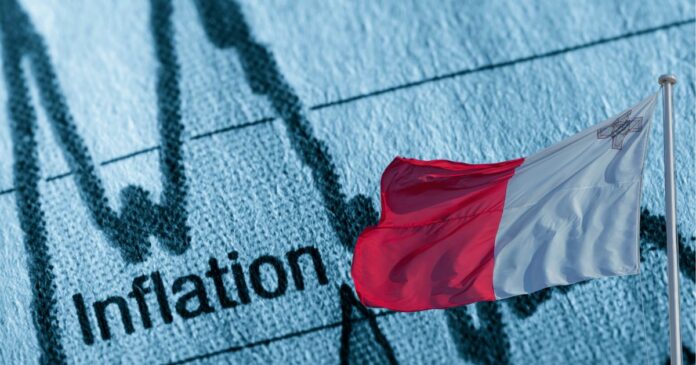A young computer scientist, Oliver Garcia, originally from London but living in Valletta, the capital of Malta, for a few years, as reported by the economic newspaper https://globeecho.com, stated: “If I had known, I would have put some cans of aluminium in my suitcase! The cost of living in Malta is lower than in the UK, but everyone still complains about inflation. However, now that I am here, I realize that Maltese people are quite well off.”
Data published by Eurostat confirms his words: since February 2020, the inflation rate recorded in Malta has been one of the lowest in the eurozone, along with that of France. In November, it was 7.2%, compared to 7.1% in France and 11.1% in the European Union (EU) as a whole. This is far from the records recorded in the three Baltic countries (over 21%).
Economist Marcos Carias, an expert in the southern eurozone at Coface, explains that this is due to the fact that, like Paris, Valletta has implemented a very protective form of tariff shield for families and businesses. In particular, the government has asked Enemalta, a 67% state-owned energy supplier, to freeze prices at the 2014 level. In return, the company receives compensation for the losses caused by this price cap due to the increase in the cost of energy imports.
Malta, being a small and densely populated island, does not have many sources of renewable energy due to the lack of space. The island therefore mainly depends on purchasing energy from abroad, particularly oil and gas, while a part of the electricity comes from Italy via a submarine cable that connects Malta to Sicily.
However, the Maltese government has decided to freeze energy prices at the 2014 levels, resulting in a significant cost for the country’s economy. According to the International Monetary Fund (IMF), this price freeze will represent 2.5% of GDP in 2022 and 3.5% in 2023. This will lead to a deficit of 6% of GDP for the entire 2022, the highest in the eurozone after Lithuania (7.1%). Despite this, Malta maintains a relatively solid financial position, with public debt at 56.3% of GDP in 2021, lower than the eurozone average of 97.1% of GDP.
Inflation in Europe. Forecasts for the year 2023.
On December 15th, the European Central Bank (ECB) decided to increase interest rates by 50 basis points and predicts further significant increases as inflation remains too high. According to projections, it will remain above the 2% target for an extended period of time.
Eurostat data shows that inflation in Europe was 10% in November, slightly lower than the 10.6% recorded in October. Experts predict that inflation in 2022 will be around 8.4%, dropping to 6.3% in 2023. Throughout the year, the rate should record a significant reduction, before stabilizing around 3.4% in 2024 and 2.3% in 2025.
Projections indicate a contained economic growth in the short term due to the energy crisis, political uncertainty, weakening global economic activity, and restrictive monetary policies. A fundamental risk for the eurozone’s prospects still concerns the possibility of disruptions to European energy supply that could cause further energy price increases and production cuts. A downside scenario taking into account this risk indicates higher inflation than the base projections in 2023 and 2024 (respectively 7.4% and 3.6%).
With the easing of unfavourable circumstances, economic growth should recover: experts predict growth of 0.5% in 2023, 1.9% in 2024 and 1.8% in 2025.
Malta’s economic outlook for 2023
Malta’s economic performance in 2022 has been among the best in the EU thanks to generous subsidies to curb inflation and increasing dependence on public and private demand. Experts’ predictions for 2023 are moderately optimistic. So, how will 2023 be and what risks still lie beneath the surface of normality?
Recent reports from the International Monetary Fund and rating agencies confirm that the finance minister’s economic predictions for 2023 are realistic and achievable. However, they identify some uncomfortable realities that must be addressed as they pose a risk to long-term economic sustainability.





